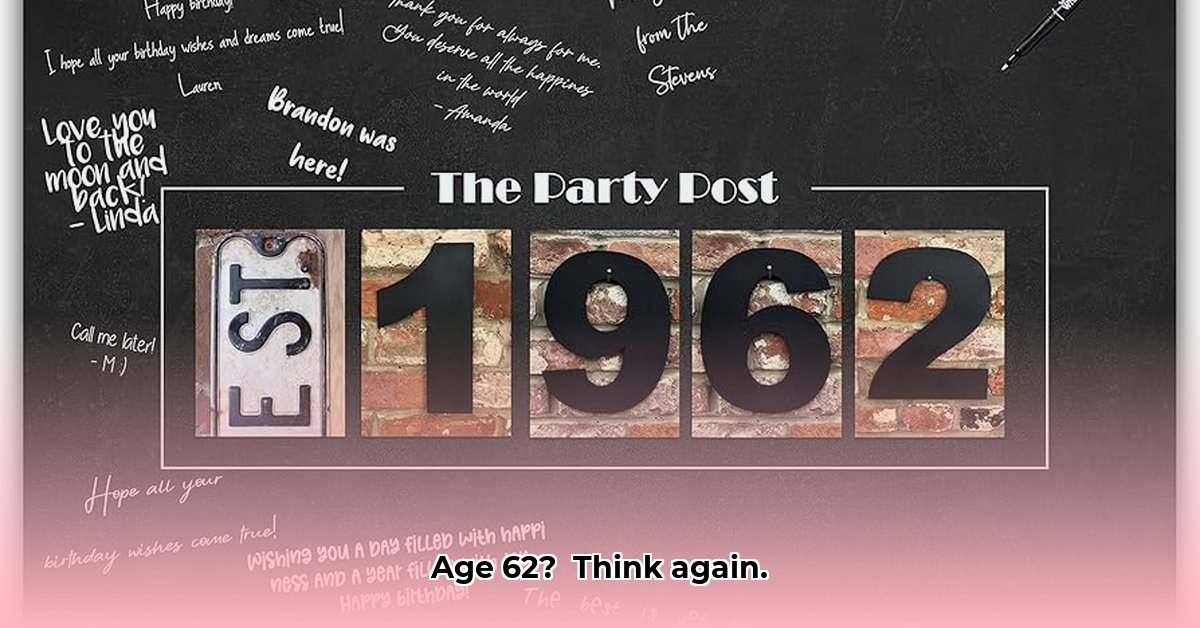
Someone born in 1962 was 61 years old in 2023. While seemingly straightforward, age calculation involves surprising complexities, particularly when considering global cultural perspectives. This article delves into the nuances of age calculation, exploring why a simple subtraction isn't always sufficient and highlighting the crucial role of cultural context.
The Standard Western Approach: The Gregorian Calendar
In most Western societies, age is determined using the Gregorian calendar. A person's age increases by one year on their birthday, making the calculation a simple subtraction of the birth year from the current year. For someone born in 1962, this means they were 61 in 2023. However, this straightforward approach overlooks significant cultural variations.
Cultural Variations in Age Reckoning: Beyond the Gregorian Calendar
Cultural interpretations of age differ significantly. Many East Asian traditions, for example, incorporate additional considerations. Age may be counted from conception, or a year may be added based on the lunar new year. Consequently, an individual born in 1962 might be considered 62 or even 63 years old depending on the cultural context. This highlights the importance of understanding the specific cultural framework when determining someone's age. Ignoring these variations can lead to misinterpretations and inaccuracies.
Examples of Cultural Variations:
- East Asian Age Reckoning: In some East Asian cultures, a person is considered one year old at birth, with an additional year added at each subsequent New Year. This means someone born in 1962 might be considered 62 or 63 years old in 2023, depending on the specific tradition.
- Other Cultural Systems: Various other cultures around the world incorporate unique methods for calculating age, often tied to religious or traditional practices.
The Impact of Leap Years and Time Zones
Even within the Gregorian calendar system, small discrepancies can arise. Leap years, occurring every four years (with some exceptions), subtly alter the length of a year, resulting in slight variations in the precise number of days lived. Time zones also play a minute role; a person born just before midnight in one time zone and just after midnight in another could technically have a different birthdate, resulting in a one-day difference in age. These are minor variations, but they highlight the potential for ambiguity in precise age calculation.
Practical Implications: Why Accurate Age Matters
Accurate age calculation is crucial across various contexts. Legal requirements, such as voting age or the age of majority, often rely on precise age determination. Healthcare professionals require accurate age data for appropriate diagnosis and treatment. Similarly, access to social security benefits and retirement plans is directly tied to age. The application of age criteria often has significant and lasting impacts on individuals' lives, emphasizing the need for careful consideration of age calculation methodologies.
Conclusion: A Multifaceted Concept
In summary, while the commonly accepted age of someone born in 1962 in 2023 is 61 according to the Gregorian calendar, the complexities involved in determining someone's true age highlight the importance of considering cultural context and other factors. Accurate age calculation transcends simplistic numerical computations and necessitates awareness of the diverse cultural perspectives and potential nuances involved. Understanding these differences promotes greater accuracy and cultural sensitivity in our interpretations of age.